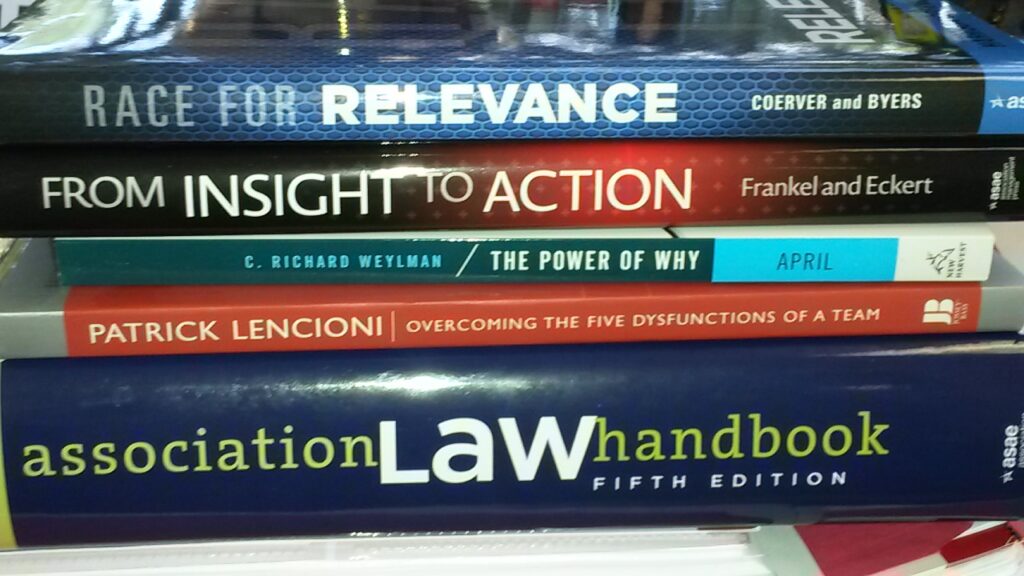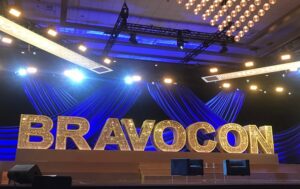By: Rachel Luoma, MS, CAE
Navigating your way through any career can pose significant challenges. I have always subscribed to the adage – you don’t know what you don’t know. As an emerging association/non-profit professional I have learned through experience some of the skills that are needed in order to build upon my career. I wanted to share some of the things that I have learned in my almost 10 year association career that have made me a better-rounded professional.
 Volunteering for Marriott/Renaissance Kids Against Hunger
Volunteering for Marriott/Renaissance Kids Against Hunger
- Engage in Networking
Let’s be honest for just a moment…how many times have we told a member or prospective member that one of the greatest benefits of our organization is networking? Why is it that often times, we turn into our members and don’t practice what we preach?
I have been blessed with strong mentors and have gotten actively involved in the local, state and national organizations such as the Tallahassee Society of Association Executive (TallySAE), the Florida Society of Association Executives (FSAE) and the American Society of Association Executives (ASAE). It is through my engagement in these organizations, that I have learned a tremendous amount about myself both personally and professionally.
I have attended numerous educational events, volunteered countless hours, met amazing people and grown my skill set. The return on investment that I have received from my involvement is immeasurable. If you are looking to make a career in associations/non-profits, I highly recommend getting involved in an organization of like-minded professionals.
- Practice Adapting
A successful career in association management will involve having the ability to adapt to a variety of personalities and situations. Throughout your career you will be asked to work with a variety of people both in terms of staff, volunteer leadership and members. It will be important that you learn to communicate in a multitude of  ways so that you can adapt to each person you work with. Focus on change in your life and how you deal with change. Work on identifying factors that cause you stress or anxiety and then shift your focus to identifying those factors at work.
ways so that you can adapt to each person you work with. Focus on change in your life and how you deal with change. Work on identifying factors that cause you stress or anxiety and then shift your focus to identifying those factors at work.
If you have a chance, I highly recommend the book The Change Monster, which introduces the concept of the change curve [1]. It talks about organizational change and outlines that phases of change including stagnation, preparation, implementation, determination and fruition. A great read for helping you realize some of the skills needed to better navigate change and build adaptation skills.
- Build Relationships
Successful associations and non-profits bring people together and successful association management professionals must be the conduit for building relationships. This typically involves building trust with colleagues, volunteer leaders, members and any other constituents. This concept is outlined very well in the book The Five Dysfunctions of a Team, by Patrick Lencioni.[2]
Effectively the book shows that Trust is the foundation to building successful relationships and provides resources and tips for overcoming the common dysfunctions within a team. A great read for developing skills for building teams and relationships.
What it all boils down to is that you should never stop learning and growing! Melissa Laughon, of Catch Your Limit Consulting, once said to me, “if you aren’t a little uncomfortable, you aren’t growing.” So, I challenge you, to put yourself out there and try to learn as much as you can and your success will be the end result.
If you have any other tips that you have learned along the way, please do not hesitate to share them. Wishing you the best!
[1] Duck, Jeanie Daniel (2001) The Change Monster, New York, NY: Random Hill
[2] Lencioni, Patrick (2002) The Five Dysfunctions of Team, San Francisco, CA: Jossey-Bass.






